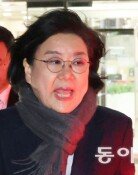[Opinion] World Citizenship
Diogenes, a Greek philosopher, answered, I am a world citizen when asked, Where are you from? He is known to be the first to use the term.
Italian thinker Machiavelli said, If you want to make your country grow, you should open your door to foreigners and prepare a safe and convenient environment for them. He advised this not because he was a proponent of world citizenship, but because he was a cold realist who wanted to make his country a superpower.
In modern times, world citizenship has been regarded as an unrealistic theory supported by romantic philosophers. But recently, the term has started to emerge again as globalization becomes more widespread. There is an awakening that the recent economic globalization should be accompanied with a human globalization in which strangers should be accepted. Some argue that the ever-strengthening wave of globalization is heightening the wall of nationalism in some places of the world, which provides stronger rationale for world citizenship.
Korea is a beneficiary of globalization. The skyrocketing growth in our economy that we experienced in the 1960s was the result of the so-called small globalization phenomenon. The United States that once occupied about 50 percent of the world economy was looking for cheap labor from overseas due to a hike in domestic wages. So the number one target was Latin America, but the U.S. excluded it from its plans when Castros revolution swept across the region. And China and the Soviet Union were also excluded because of the Cold War. In addition, differences of religion and culture also made the U.S. give up on Africa and the Middle East. Remaining were some Asian countries including Korea and Taiwan. Korea was fortunate in this sense to have successfully achieved industrialization.
Even though the 21st Century is seeing the spread of globalization in more regions, our measure of recognition of it is still low. According to a 2005-2007 research report on world viewpoints among 39 countries conducted by the Hwajeong Peace Foundation, Korea was listed fifth in racial tolerance and 17th in the rate of recognition of world citizenship. But the news is not all negative. There is an old Korean saying that people can be polite when they have a storeroom full of food. As Koreas treatment of foreigners living within the country is improving, our recognition of world citizenship will go hand in hand with further economic growth.
Hong Chan-sik, Editorial Writer, chansik@donga.com





![“한동훈, 정치생명 걸고 무소속 출마해 평가받는 것 고려할만”[정치를 부탁해]](https://dimg.donga.com/c/138/175/90/1/wps/NEWS/IMAGE/2026/01/19/133186982.1.jpg)

